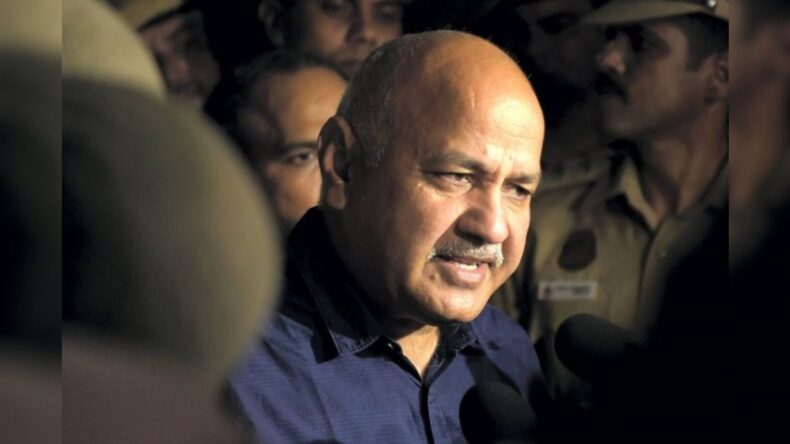Currently 40 locations across different states are being searched by the Enforcement Directorate as part of a money laundering probe involving alleged irregularities in the now-withdrawn scheme. Delhi’s excise laws
LATEST UPDATE
The new Delhi Excise Policy 2021–2022 was responsible for bringing in the first private players.
Liquor Policy by AAP party
The CBI and the Enforcement Directorate (ED), which investigates financial crimes, were directed to look into the liquor policy by Delhi’s Lieutenant Governor VK Saxena, a representative of the BJP-led government at the centre.
Deputy Chief Minister of Delhi Manish Sisodia’s apartment, the property of former Delhi Excise Commissioner Arava Gopi Krishna, an IAS officer, and 19 other places in seven states and Union Territories were all searched by the CBI on August 19. The Delhi administration, which is led by Arvind Kejriwal, has many ministries for Mr. Sisodia, including education and excise.
The Aam Aadmi Party leader and Delhi’s chief minister, Arvind Kejriwal, will soon address the media.
He has accused the federal government of using its investigative agencies against members of his party for personal gain and refuted any anomalies in the contentious liquor policy.
In the party’s campaign for the Gujarat election, central probe agencies actions against AAP ministers are a major theme. It asserts that the Delhi government’s development efforts are being hampered and its ministers are being harassed by the ruling BJP, which is allegedly scared by public support for the party.
The Delhi government completely withdrew from the alcoholic beverage industry as a result of this policy move, which saw a 27% increase in government revenue to Rs 8,900 crores.

MAJOR HIGHLIGHTS
Manish Sisodia, the AAP’s spokesperson for significant educational reforms and Delhi’s deputy chief minister, was searched and named an accused by the CBI in the case after the lieutenant governor ordered an investigation in July.
The plan, which was implemented in November of last year and included private enterprises in the alcohol sector, was scrapped by Arvind Kejriwal’s administration that same month.
The scheme, according to the AAP, was designed to boost revenue but was “scuttled by the BJP’s federal administration via the Lieutenant Governor. The BJP had asserted that there was no question about the Delhi government’s complicity in corruption after releasing a covertly shot “sting” video.
Amit Arora, who is also included in the CBI’s FIR, was purportedly seen on the video describing inconsistencies in the alcohol policy. He was recorded saying that the Delhi government’s “tailor-made” excise policy purposefully excluded smaller firms in order to benefit a select few. Amit Arora has already been questioned by the investigation team, and M/s Buddy Retail Pvt Ltd has been searched.
Amit Arora is reportedly connected with Manish Sisodia, according to the CBI.
This purported fraud from the BJP should go to the CBI because it already serves as the organization’s outside watchdog.If there is any evidence of corruption in this “sting,” the CBI should arrest me within the next four days, or until Monday, Mr. Sisodia had responded to reporters inquiries over the BJP’s accusations. If they don’t, it will be evidence that the BJP is trying to topple our government. Just an effort to discredit AAP Party he said.
WHAT IS THE LIQUOR POLICY IN QUESTION?
In November 2021, the Delhi liquor policy went into effect after being proposed in 2020.
The liquor policy altered the way that alcohol was distributed in Delhi. The alcohol industry was a state-controlled industry with no private actors prior to the introduction of the policy. The only places that could sell alcohol were those that belonged to the government.
Previously, 475 of Delhi’s 864 liquor establishments were operated by four government corporations.Under the new strategy, 849 liquor vends were awarded to private companies through open bidding.
The new Delhi Excise Policy 2021–2022 was responsible for bringing in the first private players. Each of the 32 zones that made up Delhi could have up to 27 private sellers construct a liquor store. Two or three booze merchants were present in each municipal ward.Additionally, in order to draw customers, private liquor stores were permitted to offer discounts off the Maximum Retail Price (MRP). They could even keep their stores open until three in the morning and transport alcohol to people’s homes.
The Delhi administration had claimed that the programme would get rid of the booze mafia, boost tax collection, and improve customer satisfaction. Additionally, the government has set standards for how liquor stores should look.













